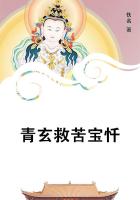The offering made by the Brahman in the morning is supposed to produce the sun, and we are told that assuredly it would not rise, were he not to make that offering. The ancient Mexicans conceived the sun as the source of all vital force; hence they named him Ipalnemohuani, He by whom men live. But if he bestowed life on the world, he needed also to receive life from it. And as the heart is the seat and symbol of life, bleeding hearts of men and animals were presented to the sun to maintain him in vigour and enable him to run his course across the sky. Thus the Mexican sacrifices to the sun were magical rather than religious, being designed, not so much to please and propitiate him, as physically to renew his energies of heat, light, and motion. The constant demand for human victims to feed the solar fire was met by waging war every year on the neighbouring tribes and bringing back troops of captives to be sacrificed on the altar. Thus the ceaseless wars of the Mexicans and their cruel system of human sacrifices, the most monstrous on record, sprang in great measure from a mistaken theory of the solar system. No more striking illustration could be given of the disastrous consequences that may flow in practice from a purely speculative error. The ancient Greeks believed that the sun drove in a chariot across the sky; hence the Rhodians, who worshipped the sun as their chief deity, annually dedicated a chariot and four horses to him, and flung them into the sea for his use. Doubtless they thought that after a year's work his old horses and chariot would be worn out. From a like motive, probably, the idolatrous kings of Judah dedicated chariots and horses to the sun, and the Spartans, Persians, and Massagetae sacrificed horses to him. The Spartans performed the sacrifice on the top of Mount Taygetus, the beautiful range behind which they saw the great luminary set every night. It was as natural for the inhabitants of the valley of Sparta to do this as it was for the islanders of Rhodes to throw the chariot and horses into the sea, into which the sun seemed to them to sink at evening. For thus, whether on the mountain or in the sea, the fresh horses stood ready for the weary god where they would be most welcome, at the end of his day's journey.
As some people think they can light up the sun or speed him on his way, so others fancy they can retard or stop him. In a pass of the Peruvian Andes stand two ruined towers on opposite hills. Iron hooks are clamped into their walls for the purpose of stretching a net from one tower to the other. The net is intended to catch the sun. Stories of men who have caught the sun in a noose are widely spread. When the sun is going southward in the autumn, and sinking lower and lower in the Arctic sky, the Esquimaux of Iglulik play the game of cat's cradle in order to catch him in the meshes of the string and so prevent his disappearance. On the contrary, when the sun is moving northward in the spring, they play the game of cup-and-ball to hasten his return. When an Australian blackfellow wishes to stay the sun from going down till he gets home, he puts a sod in the fork of a tree, exactly facing the setting sun. On the other hand, to make it go down faster, the Australians throw sand into the air and blow with their mouths towards the sun, perhaps to waft the lingering orb westward and bury it under the sands into which it appears to sink at night.
As some people imagine they can hasten the sun, so others fancy they can jog the tardy moon. The natives of New Guinea reckon months by the moon, and some of them have been known to throw stones and spears at the moon, in order to accelerate its progress and so to hasten the return of their friends, who were away from home for twelve months working on a tobacco plantation. The Malays think that a bright glow at sunset may throw a weak person into a fever. Hence they attempt to extinguish the glow by spitting out water and throwing ashes at it. The Shuswap Indians believe that they can bring on cold weather by burning the wood of a tree that has been struck by lightning. The belief may be based on the observation that in their country cold follows a thunder-storm. Hence in spring, when these Indians are travelling over the snow on high ground, they burn splinters of such wood in the fire in order that the crust of the snow may not melt.
4. The Magical Control of the Wind
ONCE more, the savage thinks he can make the wind to blow or to be still.
When the day is hot and a Yakut has a long way to go, he takes a stone which he has chanced to find in an animal or fish, winds a horse-hair several times round it, and ties it to a stick. He then waves the stick about, uttering a spell. Soon a cool breeze begins to blow. In order to procure a cool wind for nine days the stone should first be dipped in the blood of a bird or beast and then presented to the sun, while the sorcerer makes three turns contrary to the course of the luminary. If a Hottentot desires the wind to drop, he takes one of his fattest skins and hangs it on the end of a pole, in the belief that by blowing the skin down the wind will lose all its force and must itself fall. Fuegian wizards throw shells against the wind to make it drop. The natives of the island of Bibili, off New Guinea, are reputed to make wind by blowing with their mouths. In stormy weather the Bogadjim people say, The Bibili folk are at it again, blowing away. Another way of ****** wind which is practised in New Guinea is to strike a wind-stone lightly with a stick; to strike it hard would bring on a hurricane. So in Scotland witches used to raise the wind by dipping a rag in water and beating it thrice on a stone, saying:
I knok this rag upone this stane To raise the wind in the divellis name, It sall not lye till I please againe.















